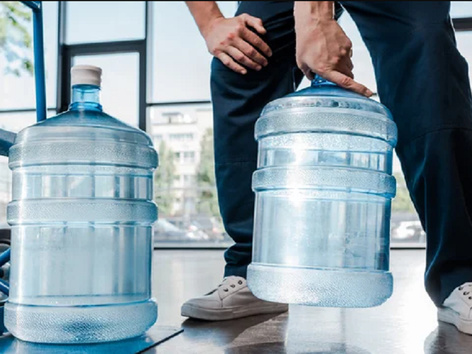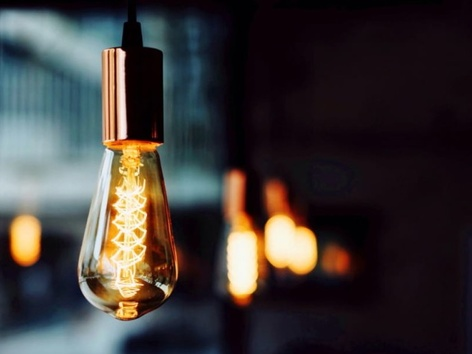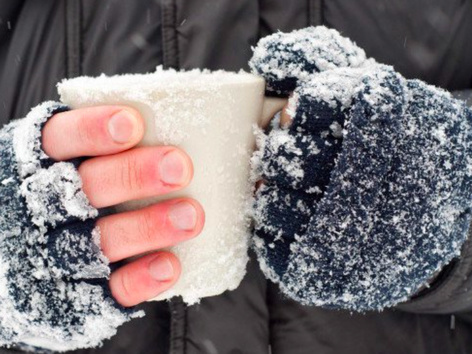How to prepare for winter during the war: what to stock up on and effective ways to insulate your home
- Home insulation: effective ways
- How to insulate windows?
- How to prepare for a lack of electricity?
- What to cook when there is no electricity?
- Porridge, for the preparation of which boiling water is required:
- Porridge, for the preparation of which cold water is enough:
- Get to know your neighbors and develop an emergency plan

The coming winter will be difficult. Ukrainians should prepare in advance for long-term blackouts and low temperatures in their own homes. We have collected for you tips that will help you not to freeze, not to go hungry and to survive a power outage.
Home insulation: effective ways
Firstly, in order not to freeze in winter, you need to take care of your home. Whether it is a private house or an apartment, it is worth doing everything so that heat is not lost in winter.
Check the tightness of the windows and doors if you live in an apartment - don't forget about the windows in the entrance. If necessary, close the cracks (put the sealant in the frame), replace the broken glass.
How to insulate windows?
If the cold enters the apartment through the windows, the easiest way to avoid this is to install double-glazed windows. When choosing double-glazed windows, preference should be given to low-emissivity ones, as they transmit less heat.
There is also a more economical option - to seal the cracks with silicone sealant. It is applied to the joints (outside the window) around the entire perimeter. At the same time, the sealant should be applied only on a dry surface.
The mounting foam will also help to insulate the windows. It should be applied between the frame and the wall. You can also use a rubberized gasket, but it will have to be changed every year with the onset of cold weather. A heat-saving film will help to save heat, it is easily glued to the glass with the help of a regular hair dryer.
If you have modern double-glazed windows, check that the windows close tightly. If not - contact the company that installed the windows - they will adjust the window.
In addition, prepare the batteries, remove furniture and curtains from them, and stick heat-reflective screens or homemade reflectors from aluminum foil and cardboard behind the radiators. Check the condition of the roof and basement, if possible, insulate the walls. We talked in more detail about preparing a private residence or apartment for winter here.
For additional heating, you can also use electric blankets, heaters, air conditioners, etc. But remember about safety - use only high-quality and certified devices.
We would like to remind you that Ukraine is currently in power saving mode. Consumers are asked not to turn on energy-intensive appliances during peak hours from 6 to 9 in the morning and from 5 to 11 in the evening, but to limit their use during the day. Restrictions apply to heaters, boilers, electric stoves, washing machines, ovens, air conditioners, microwaves, electric kettles, etc.
Remember! The more you save electricity today, the fewer emergency shutdowns will occur.
How to prepare for a lack of electricity?
Stock up on lighting supplies. It can be candles, lanterns, garlands on batteries, etc.
It is better to choose wax candles for lighting - they burn longer and are more environmentally friendly. Also, a good option are candles made of vegetable wax, they are also called stearic candles. The worst, but also the cheapest option is paraffin candles. Paraffin can have an unpleasant smell and form soot when burning.
There are also oil lamps. These are lamps operating on the basis of oil combustion. In ancient times, such a device was called a "muzzle" and was used to burn tallow (rendered cattle fat). It is not difficult to make such a candle, for this you need to pour oil into the container and lower the wick, a rope made of artificial or vegetable fibers soaked in oil.
But note that any candle for lighting is an open flame. Firstly, it is a fire hazard, and secondly, candles burn oxygen in the room during burning.
A safer lighting option is lanterns, lamps (light-emitting diode, LED) and garlands powered by batteries or accumulators. You can find many such devices in any price category. It is better to choose those devices that have built-in batteries, or to purchase a sufficient number of rechargeable batteries and a charger for them.
Tourist lanterns with solar batteries will also come in handy. Read more about travel hacks you might need this winter here.
What to cook when there is no electricity?
If you have an electric stove at home, in the event of a power outage, you will find products that can be consumed without cooking - snacks, nuts and dried fruits, canned goods - useful. Also, pay attention to fast food, freeze-dried foods, and travel rations.
Also, in the absence of electricity, you can cook ordinary cereals, some of them need to be poured with boiling water, and for some, cold water is enough.
Porridge, for the preparation of which boiling water is required:
• Barley porridge - pour boiled water and leave for 2-3 hours.
• Millet porridge - pour boiling water and wait 1 hour for infusion.
• Wheat porridge - pour boiling water and wrap the vessel in a blanket to keep warm. Wait 30-50 minutes for infusion.
• Medium or small bulgur - small bulgur is infused in boiling water for 20 minutes, medium - 40 minutes.
Porridge, for the preparation of which cold water is enough:
• Buckwheat porridge - groats can be pre-soaked in water at room temperature, milk or kefir. It should be infused for 5 to 10 hours. Therefore, it is better to soak it overnight.
• Pearl porridge - it can be poured with both boiling water and plain water. But it should be infused in cold water for 10 to 24 hours.
• Couscous - pour cold water and leave for 20-30 minutes to cook. If you pour hot water, the couscous will be ready in 5-10 minutes.
• Oat groats - to cook in cold water, leave to infuse for 30 minutes or an hour, in boiling water - 20 minutes is sufficient.
• Semolina - fill with cold water or milk, cover and leave to infuse for 15-20 minutes.
• Quinoa - cover with cold water and leave overnight.
All the listed cereals can also be prepared in a thermos. One hour of boiling on the stove equals 4-5 hours of infusion in a thermos.
In the absence of electricity, a tourist gas burner will come in handy. You can heat water for coffee or tea on it, or cook something that does not require long cooking.
We would like to remind you that it is not possible to install gas stoves in apartments - it is dangerous. Firstly, it can cause a fire, and secondly, there is a risk of smoke inhalation. Read more about it at the link.
Get to know your neighbors and develop an emergency plan
If you live in an apartment building, it will not be superfluous to get to know your neighbors in order to be able to help each other in case of need.
Firstly, if you find out that among your neighbors there are elderly people or those who need help, take care of them too. Help them find warm things, blankets, stock up on food.
Also, together with your neighbors, you can insulate the entrance and communications. For example, replace windows in the entrance, install additional doors, insulate pipes, repair the roof. Together, you can buy a generator for charging gadgets, a stove for cooking outside or in the basement, etc.
In case of a long-term lack of electricity or heating, prepare an action plan, think about where you can temporarily move and be ready for it. Also, be ready to host relatives or friends at your home if they have to leave.
Keep yourselves!
Recommended articles
1 min
Lifehacks
1 min
Popular
1 min
Education



